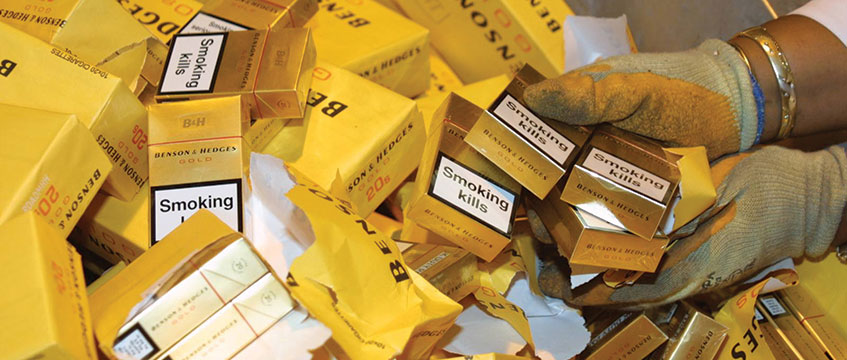Addressing the impact of the government’s plans to enlist landlords in the fight against evasion of tobacco duty
The government has published proposals that could see landlords being enlisted in the fight against illegal tobacco smuggling. This is another step in the worrying trend of imposing extra compliance burdens on legitimate businesses in order to catch tax evaders.
HM Revenue & Customs (HMRC) estimates that, in 2015-16, 5bn illicit cigarettes and 3,200 tonnes of illicit hand-rolling tobacco were consumed in the UK. In a consultation closing on 10 May, the government is proposing tougher financial penalties for those who repeatedly smuggle tobacco into the country and a new civil penalty for those who store or sell illicit tobacco products.
More controversially, the government is considering introducing a statutory duty of care on landlords. It is concerned that landlords are aware that premises are being used to sell illicit tobacco but are turning a blind eye.
How landlords may be affected
One proposal is that landlords voluntarily include in their leases a clause prohibiting illegal tobacco or other excise activity on their premises. Since clauses prohibiting the use of the premises for illegal activities are common in most commercial leases, this proposal will not be unduly onerous.
A more radical proposal is to introduce a duty of care on landlords of properties which are used in tobacco fraud. The duty of care would only arise once the landlord had been informed (presumably by HMRC) that the tenant had evaded tobacco duty, which offers an initial level of protection.
If the tenant continues to deal in illicit tobacco, it is proposed that the landlord would be subject to a new civil penalty unless the landlord could show that it had taken reasonable steps to ensure that its property was not used to evade duty. The consultation suggests reasonable steps could include:
■ having provisions in all new leases making it clear that any illicit tobacco trading or any other illicit excise activity will terminate an existing lease;
■ evicting anyone who subsequently violates these provisions;
■ undertaking periodic checks on the premises and requesting information relating to the tenant’s business;
■ taking steps to ensure they are aware of illicit activity and contacting HMRC or Trading Standards immediately if they have concerns; and
■ providing HMRC with a copy of the tenancy agreement with provisions relating to illicit tobacco or other excise products.
It sounds straightforward to say that a landlord should evict a tenant who engages in illicit tobacco trading. However, leases do not terminate automatically just because a lease clause is breached. The landlord would need to take positive steps to bring the lease to an end and this would take time and result in legal costs for the landlord, as well as loss of rent and a rates liability. There is also a lack of clarity concerning who is regarded as the landlord. If the tenant had sublet the whole or part of the property, would the superior landlord be expected to terminate the lease of its innocent tenant, which would have the effect of terminating the sublease too?
Crucially, it is unclear just how far HMRC expect landlords to go in checking premises. Tenants will not advertise, and are unlikely to admit on request, that they are involved in selling illicit tobacco, particularly when they know that could result in eviction. So how will a landlord know what the tenant is up to – periodic, unannounced site checks? Tenants often have rights limiting a landlord’s ability to access premises, typically requiring notice to be given, thereby providing sufficient time for a tenant to conceal any illegality. Further, for large commercial landlords and property investment funds, the logistical and resource burden required to police nationwide property portfolios is extensive; and, even when faced with evidence of tobacco storage, what level of investigation will be required of the landlord in order to be satisfied that goods are not counterfeit and have had all taxes and duties paid?
The business burden
This proposal is yet another in the growing trend of pushing responsibility onto business to police tax evasion. This autumn will see the introduction of a new corporate criminal offence for businesses that fail to prevent their employees or other “associated persons” – such as agents and intermediaries – from facilitating tax evasion. The new rules will effectively make a business vicariously liable for the criminal acts of its employees and associated persons, even if the senior management of the business was not involved or aware of what was going on. A business will have a defence if it can prove that it had put in place reasonable prevention procedures to prevent the facilitation of tax evasion taking place, so all businesses will need to assess their risk and get the necessary policies and procedures in place.
Landlords and other reputable businesses of course want to see the law enforced and would not condone tax evasion. However, the primary targets for the relevant authorities must be those who seek to break the law rather than those legitimate businesses who unwittingly deal with them.
Stuart Walsh is a tax partner; Rebecca Glover is a senior associate in the real estate sector at Pinsent Masons LLP








